The Intel Haswell Refresh Review: Core i7-4790, i5-4690 and i3-4360 Tested
by Ian Cutress on May 11, 2014 3:01 AM ESTSYSMark and Scientific Benchmarks
SYSmark 2014
SYSmark is developed by BAPCo, the Business Applications Performance Corporation, which includes in its current members Intel, Dell, Lenovo, Microsoft, Samsung, Sony, and Toshiba. The latest version of SYSmark, SYSmark 2014, uses the latest software packages from Adobe and Microsoft and meshes them together into a stringent testing package that can take a couple of hours to run. The end result gives marks for in office productivity, media creation and data/financial analysis sections as well as an overall result. SYSmark uses a standard office computer (an i3-4130 with a 500GB mechanical drive, 4GB DRAM, 1080p, integrated HD4400 graphics) to provide a benchmark score of ‘1000’, and all results are compared to this. Our testing runs the processors at 1080p with integrated graphics on an OCZ Vertex 3 240GB SSD.
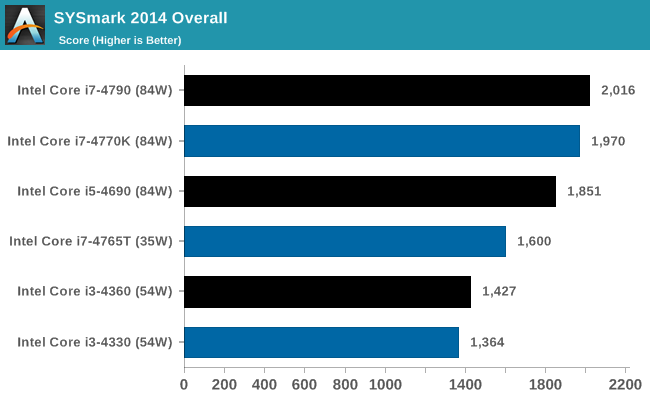
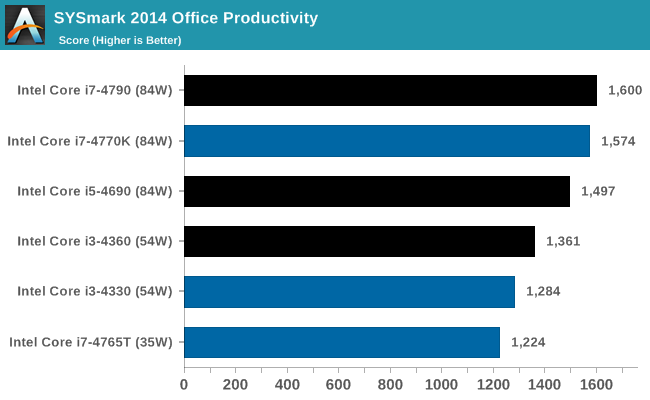
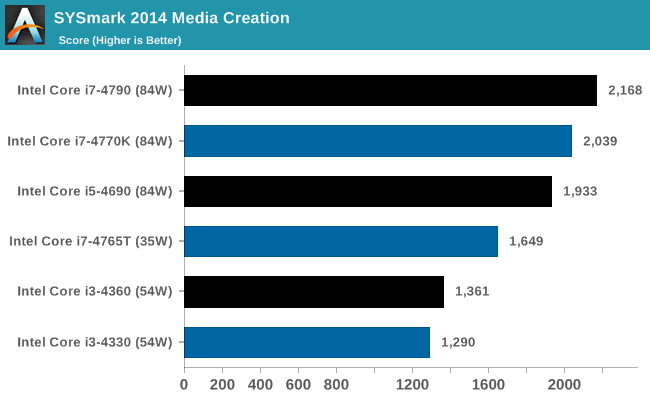
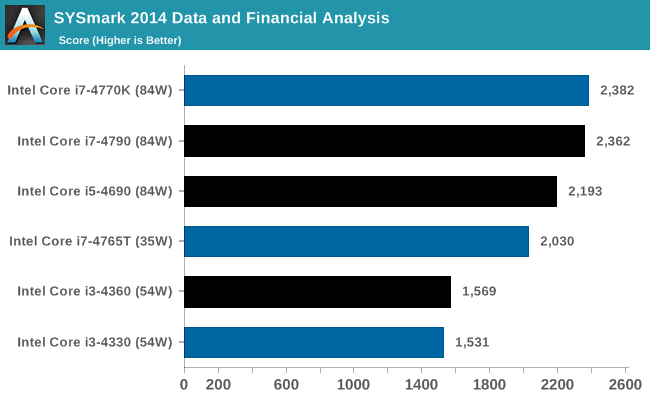
As we have not tested SYSmark 2014 with other CPUs yet, our results are rather limited, however the overall results are in line with what we would expect.
Point Calculations – 3D Movement Algorithm Test: link
3DPM is a self-penned benchmark, taking basic 3D movement algorithms used in Brownian Motion simulations and testing them for speed. High floating point performance, MHz and IPC wins in the single thread version, whereas the multithread version has to handle the threads and loves more cores.
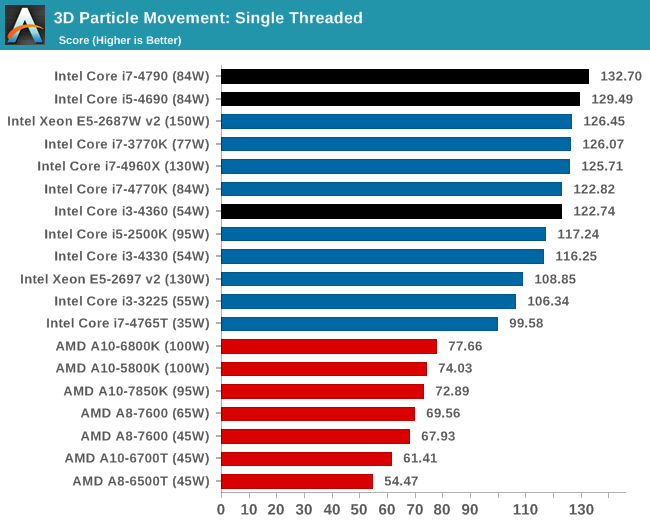
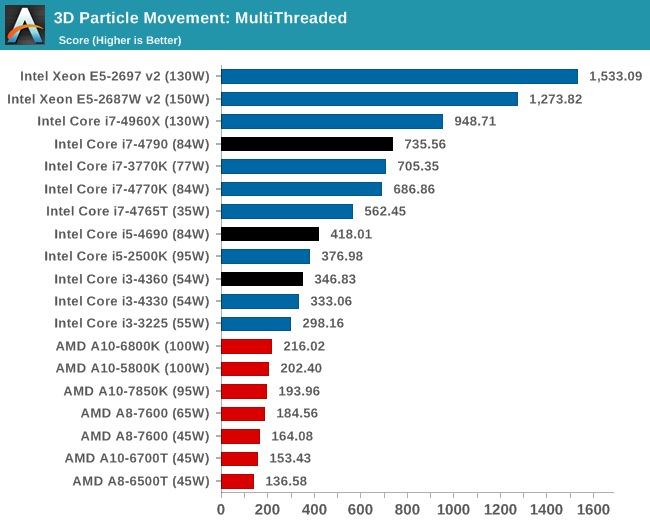










130 Comments
View All Comments
AndrewJacksonZA - Monday, May 12, 2014 - link
If you didn't clarify "Human limited" and "CPU limited" I would've understood them the other way around:"Human limited" has the human being as the slowest part of the system with a very fast CPU.
"CPU limited" has the CPU as the slowest part of the system.
Harry Lloyd - Monday, May 12, 2014 - link
Testing performance of these CPUs is completely pointless. The only interesting thing about them is power consumption and thermals.geok1ng - Monday, May 12, 2014 - link
The benchmarks of the Xeon 2687 v2 8c/16Ht imply that the upcoming Extrem Edition haswell-E CPU will be a landslide. 5960X can't come soon enough.Antronman - Monday, May 12, 2014 - link
If the 5960x will be as bad as the 4960x, the 5930k can't come soon enough either.milkMADE - Monday, May 12, 2014 - link
too bad the only sku with 8-cores to give it that landslide are the EE $1000 5960xgeok1ng - Tuesday, May 13, 2014 - link
a xeon 1680 v2 , single socket 8c/16ht costs $1887, and afetr 6 months we still do not know if it is unlocked like the 6cores 1650/1660. So $1000 for a 5960x is not outlandishChrispy_ - Monday, May 12, 2014 - link
Looking at the Z97 vs H97, why are small businesses not allowed to use SRT?Such dumb.
Antronman - Monday, May 12, 2014 - link
How many fucks I give: 0.StrangerGuy - Monday, May 12, 2014 - link
Intel can spam a million SKUs left and right while pretending it's relevant like 10 years ago and it still doesn't mask the fact there are only like 2 chips @ $50 and $220 that makes sense for 90% and 9.99% of desktop users respectively, and most of them are well served by chips sold 3 years ago.Antronman - Monday, May 12, 2014 - link
Actually there are more "sensible" enthusiast chips. For example, if I am running a 4k setup, and I also record gameplay and upload it to youtube, I want something notably better performing than the 4670k. And I would say that much larger .01% of the computer-using community is pro overclockers and video editors and scientists and software developers.There's so many niches these days, a much greater percentage of people needing more specific solutions is present than most people think.